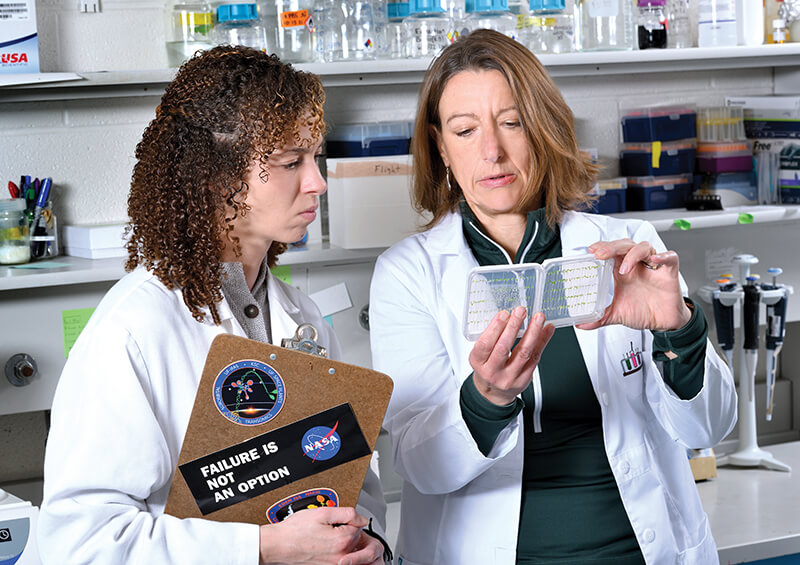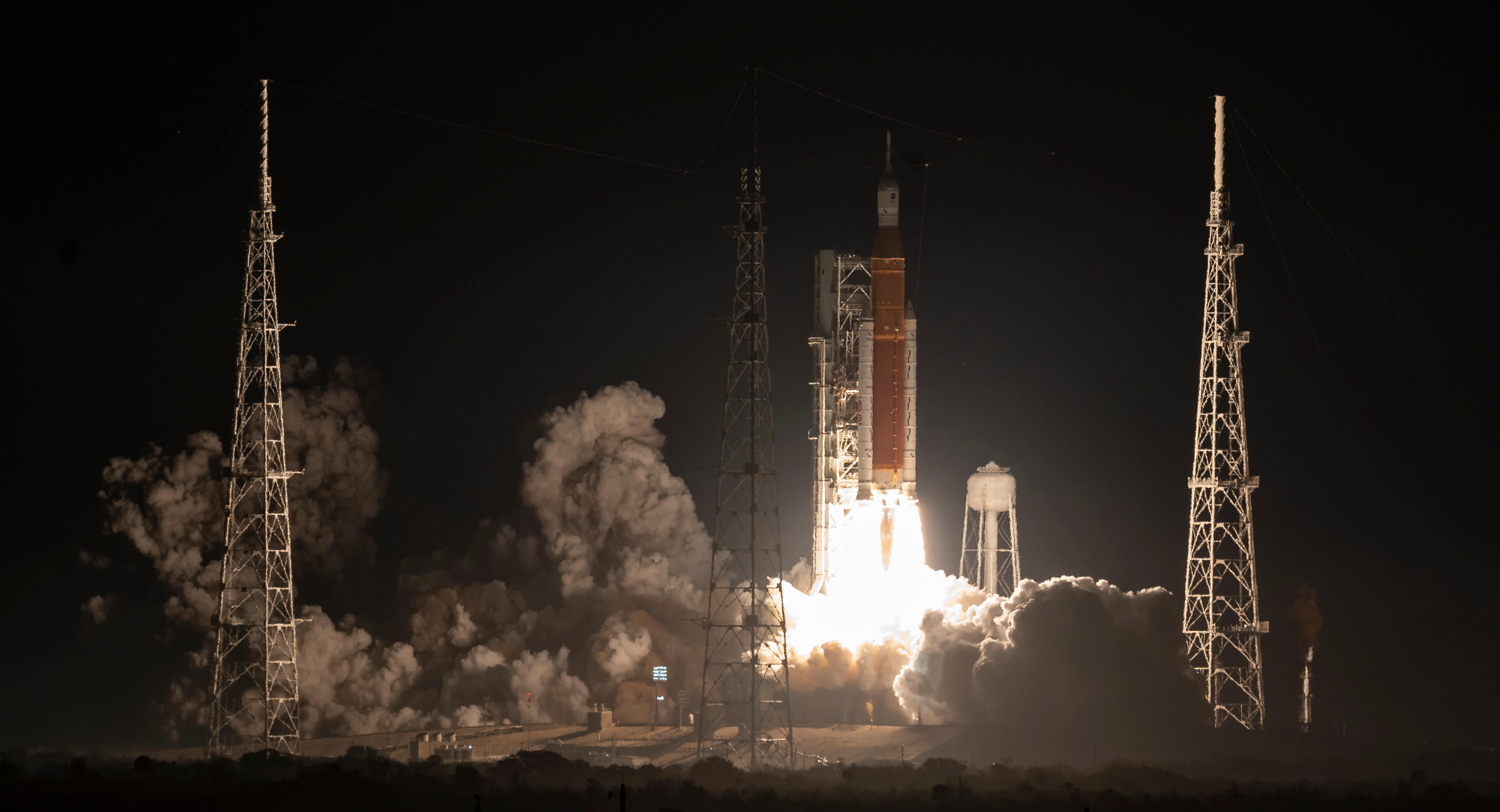MSU’s ‘seeds in space’ collaboration wins NASA award
Article Highlights
- NASA awarded a prestigious Silver Group Achievement Award Silver to the team behind Biological Experiment-01 that flew aboard the recent Artemis I mission and included research from Michigan State University.
- The team’s MSU contingent led a seed experiment with the goal of helping prepare future astronauts to grow healthy crops away from Earth.
- The project also included a yeast experiment led by the University of Colorado-Boulder, a fungus experiment led by the Naval Research Laboratory and an experiment with photosynthetic algae led by the Institute for Medical Research, a nonprofit research corporation.
NASA has awarded a prestigious Group Silver Achievement Award to the team behind a project known as Biological Experiment-01, which includes Michigan State University researchers led by Federica Brandizzi.
Biological Experiment-01, also shortened to BioExperiment-01 and BioExpt-01, was a collection of four separate but related projects that flew aboard NASA’s uncrewed Artemis I mission that orbited the moon and returned to Earth. Together, the projects allowed scientists to study new questions about how various life forms respond to space travel.

For its part, the Spartan contingent launched a seed experiment with the goal of helping prepare future astronauts to grow healthy crops away from Earth.
“This is really about understanding how we can establish and sustain life outside of this planet,” Brandizzi said before the Nov. 16, 2022 launch of Artemis I. “We need to have plants that can survive long-term space travel for generations.”
The Orion spacecraft carrying the seeds splashed down back on Earth on Dec.11, 2022. The seeds returned to Brandizzi, an MSU Research Foundation Professor in the Department of Plant Biology and the MSU-DOE Plant Research Laboratory, or PRL, in January.
Since then, her team has been analyzing some of those samples to gain insights into how seeds can be protected against the effects of flying through the radiation belt that surrounds the Earth.
Some of the seeds that made the trip were also frozen so that researchers can thaw them later to investigate follow-up questions or new lines of inquiry without needing to send more samples into space.
“Thinking ahead, we included more seeds than required for possible experiments in the future,” said Joanne Thomson, a doctoral student in the Brandizzi lab, after the seeds returned.

It’s some of this preparedness that NASA highlighted in recognizing BioExpt-01, which its team members demonstrated before the mission even had a chance to take off. NASA had to postpone the launch of Artemis I four times due to weather and technical problems, which amounted to a nearly three-month delay.
“The BioExperiment-01 endured numerous challenges including an unpredictable launch date that made maintaining the biological samples in optimal condition a difficult task,” said a NASA memo describing the award.
In addition to the seed experiment from MSU, BioExpt-1 included a yeast experiment led by the University of Colorado-Boulder, a fungus experiment led by the Naval Research Laboratory and an experiment with photosynthetic algae led by the Institute for Medical Research, a nonprofit research corporation.
“The team members, being highly professional and knowledgeable, put forth their utmost effort to maintain the scientific experiments in ideal conditions,” the memo continued. “BioExperiment-01 provided valuable science and lessons to be implemented in future Artemis missions carrying biological payloads.”
The Group Achievement Award is bestowed by NASA for “outstanding accomplishment through
the coordination of many
individual efforts.”